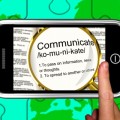
If I have to say it in a nutshell, the freelance interview is the chance for the freelancer to land the job! Last week, we discussed some of the freelance cover letter specifics so this week we’ll speak about the next step – the freelance interview.
What’s the freelance interview – technically speaking
The freelance interview is not necessarily a face-to-face type of interview. Technically, it’s just called “an interview” so that we differentiate the candidates who have applied to a certain project from those who have actually been approved for the interviewing process.
Usually the client chooses the best form of conducting the freelance interview but if you, as the freelancer, have your preferences, be sure to communicate them well. There’s no obvious reason for the client to disagree.
99 out of 100 times, the freelance interview is in the best interest of both clients and freelancers.
It gives both sides the opportunity to ask their questions and to get the answers they are looking for. During the freelance interview, it’s accustomed to negotiate all conditions and requirements of the project – e.g. time-line, deadlines, working hours (if any), online availability (if needed), communication channels, reports, work flow, and so on.
The freelance interview could be conducted via email or in real-time, or both.
In case your choose an email freelance interview, a few emails with questions and answers are exchanged, perhaps some documents related to the company and/or the project, and that’s about it.
However, usually the freelance interview is conducted via Skype, Google Talk, Yahoo Messenger or other platform for real-time communication. It can be chat, voice call or video conference. The purpose of this form of interview is again to ask and answer questions, to define requirements and expectations, work-flow, etc. There’s added value to this type of freelance interview though:
- the client could determine how fluent the freelancer is in English (if it is not their mother tongue)
- both the client and the freelancer could hear the other party’s voice and get a feel of personal qualities like honesty, responsibility, confidence, and others, which you, personally, find useful and mandatory” for a successful collaboration.
If your freelance interview is a voice call, it’s recommended you have a headset to improve the call quality. The good sound experience during the call impacts the after-interview feelings of the client.
I prefer voice call interviews both as a client and as a freelancer,
so that I can make an informed decision if I want to work with the other party or not. Everyone can write good cover letters or have them written for a fee. In a real-time voice communication though, we couldn’t pretend much. For the trained ear, a voice call freelance interview will show the personal qualities of the potential client or freelancer and will help us decide if we want to enter a contract with them or not. 😉
As for the camera being on or off,
It is a matter of personal preference. There are no set rules or etiquette for that. I don’t find video calls necessary as it is not important how the person looks like but how they articulate their thoughts and how they behave. You anyway will work with this person online – why do you need to see them?
If someone insists on a video call and have valid reasons for that requirement, we could of course turn our camera on this one time. If there’s no good reason for this requirement, watch out – it may be a red flag for bad client! However, remember that there may be good reasons for keeping the camera off as well. For instance, I never dress up for work and my work clothes are often (maybe even always) not very appropriate for the office. So I sure keep it off all the time 😉
Another important detail of the freelance interview is the non disclose agreement (NDA).
Some clients require their freelancers to sign such a document. Usually, this happens if we will potentially work on a large-scale project with large teams. It’s no different from any other employment contract we would sign anyway. Well, read it before signing it but don’t be put off if a client asks of you to sign an NDA – they are just trying to protect their intellectual property and business information.
And finally, reply in timely manner if you truly want to land the freelance job.
If you are invited to bid on a freelance project, try to accept or decline that invitation within 24 hours. This way you show your availability and interest toward the project. Clients frown upon taking a few days to reply to a single message. It means you are not interested or you just lack time management skills. If you delay your reply for some reason, always apologize for the delay and if appropriate and relevant, explain your reasons.





Beware of creepy people who only want to see where you live and have a hidden agenda of their own! Camera’s broken, Sir. Sorry. Heh. 🙂
hahaha, true, Lorraine – there are all kind of people out there. So far, i have not had a single client who insisted on using video call for an interview for whatever reason… But who knows – be ware of creepy people indeed! Thanks for joining the conversation 😉
As a freelance writer who is fairly new at the game, I appreciate the insights offered by your blog, particularly pertaining to the many reasons why it may be best to have a phone interview.
Hey, Michele! Welcome to the freelance club then 😉 I am glad you find my blog useful – hope to see you soon and be sure to send me a note if you have a specific question which is not yet answered here. I love readers’ feedback – it’s the greatest source of posts ideas 😀 Thanks for stopping by!
I could at some point need some freelancers so it’s good to see it all from the other side too. Thanks for providing your experience, as I have none in this area so it’s great to hear about it.
Hey, Ashley! Thanks for your comment 😀 I am glad i could help – i have plenty more to share from freelancers’ side. But you know what? Being a freelancer, i probably don’t encounter the same issues as a client as i know the ropes from freelancers’ point of view… so it would be very valuable to me if you can help me with some questions a client might have about collaboration with freelancers. what do you think?
Very useful tips Diana. I can think of a few folks who could really benefit from this, both as freelancers and as those who hire them.
Hey, Debra! Thanks for your comment and for spreading the word. I hope your friends liked the post and made their work easier and fun, too 😉
” I never dress up for work and my work clothes are often (maybe even always) not very appropriate for the office” – you sound like me. I wear my most comfortable shirts while working. When I have a presentation or some place nice to go, it’s a much nicer shirt and skirt and pearls, too.
I’ve been doing freelance for over ten years – the phone works well for initial introductions. In my kind of work, the client needs to be good at email for the project to go well, though I’ve had clients that are local for whom I over-compensate by doing their writing, too and I meet in person more often.
Thanks for your comment, Leora! I think more and more freelancers are like us – i mean, not dressing up for work 😉
I can understand the fancy clothes and pearls when you have to go somewhere to meet a client or for a presentation – but when i think about it, for the last 5 years, i have never met with a client (local or not). I have a few dresses for weddings and other formal occasions but no suits or some other clothes appropriate for work. Oh, i feel so good about it 😀
I appreciate the info you’ve put on your blog. This one in particular made me think that I need to prepare an answer to the one thing I won’t do: Skype or any webcam. I don’t want to lose business because of it, but it really doesn’t work for me.
For one thing, I’ve an older computer and any Skype-type “thing” comes in choppy and slow. It’s hard to answer a question asked a minute ago, when another question has already popped up. The other thing is that I’m growing deafer by the year. Phones are difficult enough. Skype would be unbearable.
Thank you for reminding me that we can choose not to join in on all the communication gadgets.
Thanks for your comment, Kendra! Glad i could help.
While it’s true we can choose not to use everything there is available to us in terms of technology, when it comes to Skype – you may definitely lose business because of it. Many, maybe i should even say majority of clients do want to hear your voice, to feel your personality… If Skype is the problem, maybe a brief phone call to get to know each other (like an interview) is a good alternative.
But again – there are the other type of clients – who don’t want to hear your voice. So i wish you more of them 😉